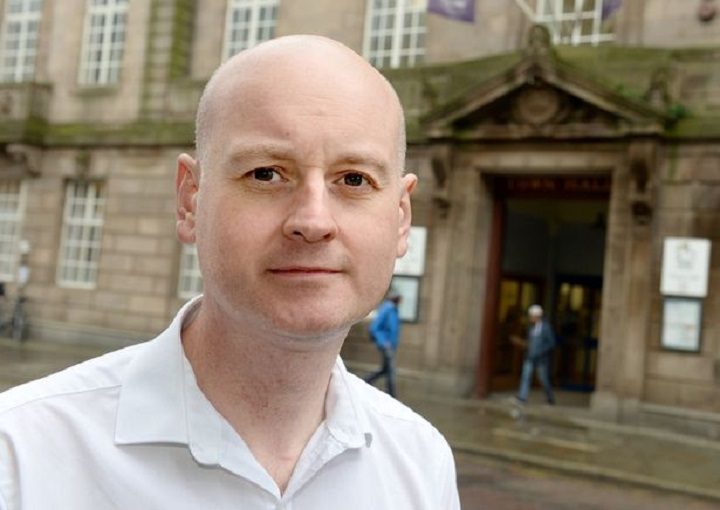Webinar: Monday, June 15, 2020
 The coronavirus crisis has aggravated an austerity politics rooted in the unequal distribution of economic and political power. Key challenges have emerged in how work is organized, who has access to wealth and the provision of basic goods and services. In this webinar we will explain three different kinds of models which relate to different ways of organizing work, production and consumption. These models each provide a foundation for community wealth building and extending the capacities of local communities. We will examine how these models can help us promote a more equitable distribution of economic power, a key question given contemporary challenges associated with mass unemployment, poverty, access to resources and urban unrest. A key sub-theme will be to look at alternative ways to approach the food and agricultural sector.
The coronavirus crisis has aggravated an austerity politics rooted in the unequal distribution of economic and political power. Key challenges have emerged in how work is organized, who has access to wealth and the provision of basic goods and services. In this webinar we will explain three different kinds of models which relate to different ways of organizing work, production and consumption. These models each provide a foundation for community wealth building and extending the capacities of local communities. We will examine how these models can help us promote a more equitable distribution of economic power, a key question given contemporary challenges associated with mass unemployment, poverty, access to resources and urban unrest. A key sub-theme will be to look at alternative ways to approach the food and agricultural sector.
 On Monday, June 15, 2020, at 18:00 Stockholm Time (12:00 noon New York Time), the Global Teach-In will organize a webinar on the theme, “Reclaiming Urban and Rural Power: Models for Wealth Accumulation in an Age of Austerity.” There will be three featured speakers including: Councillor Matthew Brown, the head of the Preston City Council in the UNITED KINGDOM; Jenny Gkiougki, Director and Project Manager of Agroecolopolis in GREECE; and Sebonkile Thaba, Lecturer at the University of Johannesburg in SOUTH AFRICA. The discussion will be moderated by Jonathan Michael Feldman, Stockholm University and Sizwe Mkwanazi, Africa Cooperatives Institute of South Africa.
On Monday, June 15, 2020, at 18:00 Stockholm Time (12:00 noon New York Time), the Global Teach-In will organize a webinar on the theme, “Reclaiming Urban and Rural Power: Models for Wealth Accumulation in an Age of Austerity.” There will be three featured speakers including: Councillor Matthew Brown, the head of the Preston City Council in the UNITED KINGDOM; Jenny Gkiougki, Director and Project Manager of Agroecolopolis in GREECE; and Sebonkile Thaba, Lecturer at the University of Johannesburg in SOUTH AFRICA. The discussion will be moderated by Jonathan Michael Feldman, Stockholm University and Sizwe Mkwanazi, Africa Cooperatives Institute of South Africa.
 Councilor Brown will discuss the Preston Model in which the city council, together with various anchor institutions and other partners have promote a system for building wealth in the local communities of Preston and the greater Lancashire area. In this model, local populations take control over the growth process so that the benefits of growth can be invested locally. Local institutions help anchor productive investments to promote the goals of inclusion and a more equitable society. The Preston Model is regarded as one of the most important local economic development initiatives in the United Kingdom with implications for various localities in the Global North and South.
Councilor Brown will discuss the Preston Model in which the city council, together with various anchor institutions and other partners have promote a system for building wealth in the local communities of Preston and the greater Lancashire area. In this model, local populations take control over the growth process so that the benefits of growth can be invested locally. Local institutions help anchor productive investments to promote the goals of inclusion and a more equitable society. The Preston Model is regarded as one of the most important local economic development initiatives in the United Kingdom with implications for various localities in the Global North and South.
 Genny Gkiougki will explain the efforts of Agroecopolis to organize what they call “a nationwide digital and social media campaign promoting local direct links between producers and consumers all over the country.” She explains that this effort links urban consumers and rural producers using social media. On the one hand, “consumers living in urban setting (from big cities to small towns)…are concerned about the safety in big crowded stores; are interested in eating healthy; and wish to protect and cater for their families in times of uncertainty.” On the other hand, farmers seek new markets for their produce and lack manpower to fully cultivate their crops.
Genny Gkiougki will explain the efforts of Agroecopolis to organize what they call “a nationwide digital and social media campaign promoting local direct links between producers and consumers all over the country.” She explains that this effort links urban consumers and rural producers using social media. On the one hand, “consumers living in urban setting (from big cities to small towns)…are concerned about the safety in big crowded stores; are interested in eating healthy; and wish to protect and cater for their families in times of uncertainty.” On the other hand, farmers seek new markets for their produce and lack manpower to fully cultivate their crops.
 Sebonkile Thaba will explain various cooperative projects in South Africa and how they can promote more resilient communities. She is part of a larger network which works on cooperative development in her country. She will discuss the advantages of crop diversity, particularly the gains made by farming more drought-resistant sweet potatoes. By working with the latter crop and integrating along the value chain poverty can be reduced. One project that has been developed is a yoghurt using sweet potatoes. The development of this product helped bring the global market closer to front line agricultural producers. By linking agricultural production of sweet potatoes to industrial processes of various products like juice, chips, bread and alcoholic drinks, rural agriculture can be closer linked to manufacturing platforms.
Sebonkile Thaba will explain various cooperative projects in South Africa and how they can promote more resilient communities. She is part of a larger network which works on cooperative development in her country. She will discuss the advantages of crop diversity, particularly the gains made by farming more drought-resistant sweet potatoes. By working with the latter crop and integrating along the value chain poverty can be reduced. One project that has been developed is a yoghurt using sweet potatoes. The development of this product helped bring the global market closer to front line agricultural producers. By linking agricultural production of sweet potatoes to industrial processes of various products like juice, chips, bread and alcoholic drinks, rural agriculture can be closer linked to manufacturing platforms.
For more information: Contact @globalteachin (Twitter); globalteachin@gmail.com
Watch the webinar here: https://www.facebook.com/globalteachin/